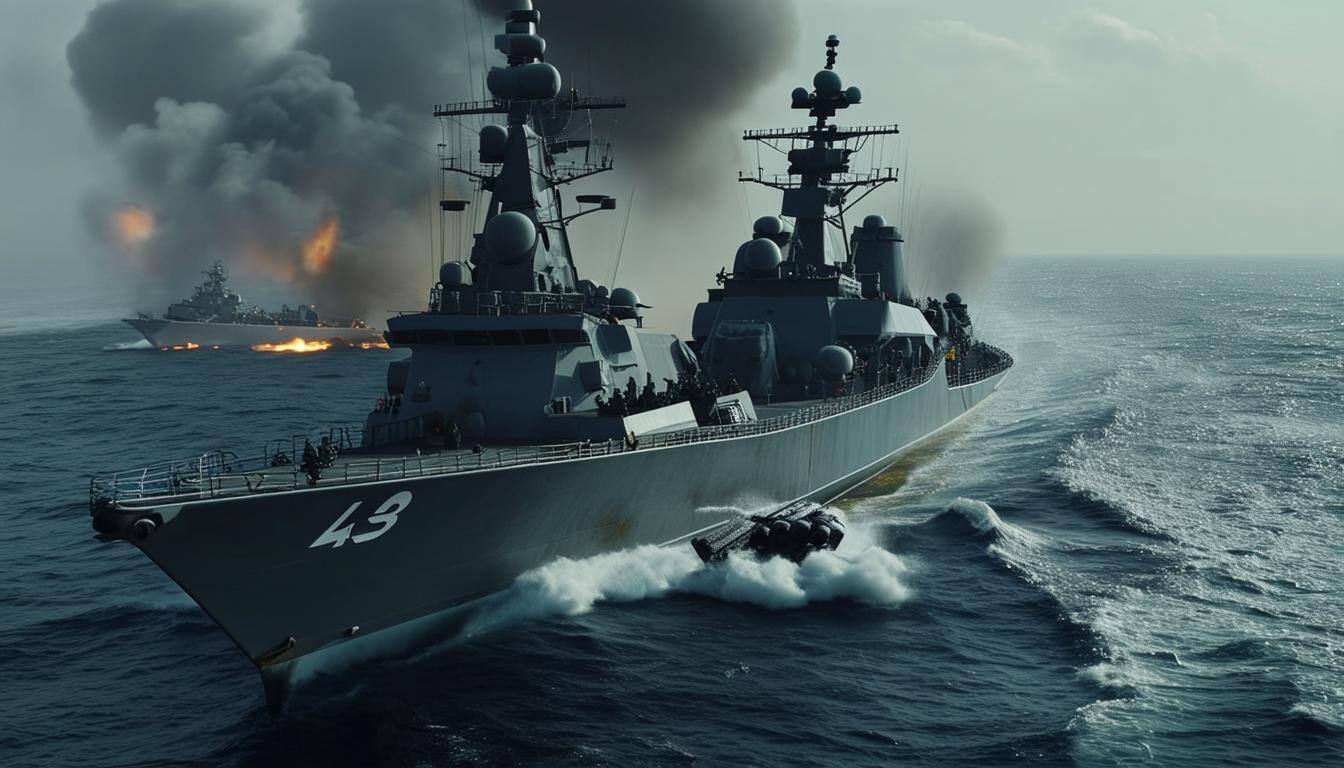The ongoing conflict between Russia and Ukraine has not only unfolded on land and in the air but also significantly on the waters of the Black Sea.
Russia's maritime setbacks have constrained its naval power and reshaped the region’s geopolitical landscape. Ukraine's effective use of maritime strategy, including naval drone strikes, has degraded Russia's Black Sea Fleet, leading to the loss of control over critical near waters and forcing Russia to retreat from key positions.
The Black Sea, a strategic enclosed waterway bordered by Ukraine, Russia, Turkey, Bulgaria, Romania, and Georgia, has long been contested. Russia’s 2014 annexation of Crimea enabled it to dominate the port of Sevastopol and project power over Ukraine's near waters. By disrupting Ukraine’s maritime trade routes, especially grain exports, Russia sought to weaken its economy. However, collaborative efforts by neighboring NATO countries such as Romania, Bulgaria, and Turkey allowed Ukraine to circumvent these disruptions, keeping vital grain exports flowing through alternative maritime routes to global markets. Despite a significant reduction in export volumes compared to pre-war levels, Ukraine managed to sustain crucial trade activities, maintaining economic stability.
Ukraine’s naval resilience has been a key factor in altering the dynamics in the Black Sea. Since the onset of the full-scale war in February 2022, Ukraine has employed naval drones to target Russian warships, successfully sinking or damaging a significant portion of the fleet. Roughly 15 out of Russia's pre-war fleet of 36 warships have been sunk, with others sustaining damage. This naval attrition forced Russia to limit its operations to the eastern Black Sea and avoid Ukrainian-controlled waters, effectively ceding control over maritime zones it previously dominated.
Historically, Russia has faced challenges in projecting naval power beyond its near waters, often focusing on defending enclosed seas such as the Black and Baltic Seas. Notable defeats, such as the loss to Japan in 1905 and blockades during both World Wars, highlight Russia's constrained maritime capabilities. The Cold War saw the Soviet Union build a significant navy, but its far-water capabilities were largely reliant on submarines rather than a comprehensive surface fleet. The recent setbacks in the Black Sea further highlight Russia's difficulties in sustaining a credible naval presence beyond its regional waters.
As Russia struggles to regain its footing in the Black Sea, it has turned to China for naval cooperation. This partnership has grown more pronounced, with joint naval exercises in regions like the South China Sea demonstrating a strategic alignment. However, this alliance places Russia in a subordinate role, with China dictating the terms of engagement. While Russia’s involvement aids China's defense of northern waters and opens avenues for accessing far waters through the Arctic, the strategic benefits are skewed heavily in China's favor.
China’s burgeoning naval capabilities allow it to project power across multiple global regions, including Africa, the Pacific, and Europe. In contrast, Russia, hemmed in by the conflict in Ukraine, must rely on China to extend its reach to far waters, particularly in the Indian Ocean and Africa. Although there are mutual interests in securing maritime trade routes and economic partnerships, the collaboration is primarily driven by China’s broader strategic goals.
Ultimately, Russia's naval losses in the Black Sea have relegated it to a junior partnership with China, limiting its ability to project independent maritime power on a global scale. Even if Russia achieves land-based military success in Ukraine, its naval ambitions will remain constrained, with its global maritime influence significantly diminished.





